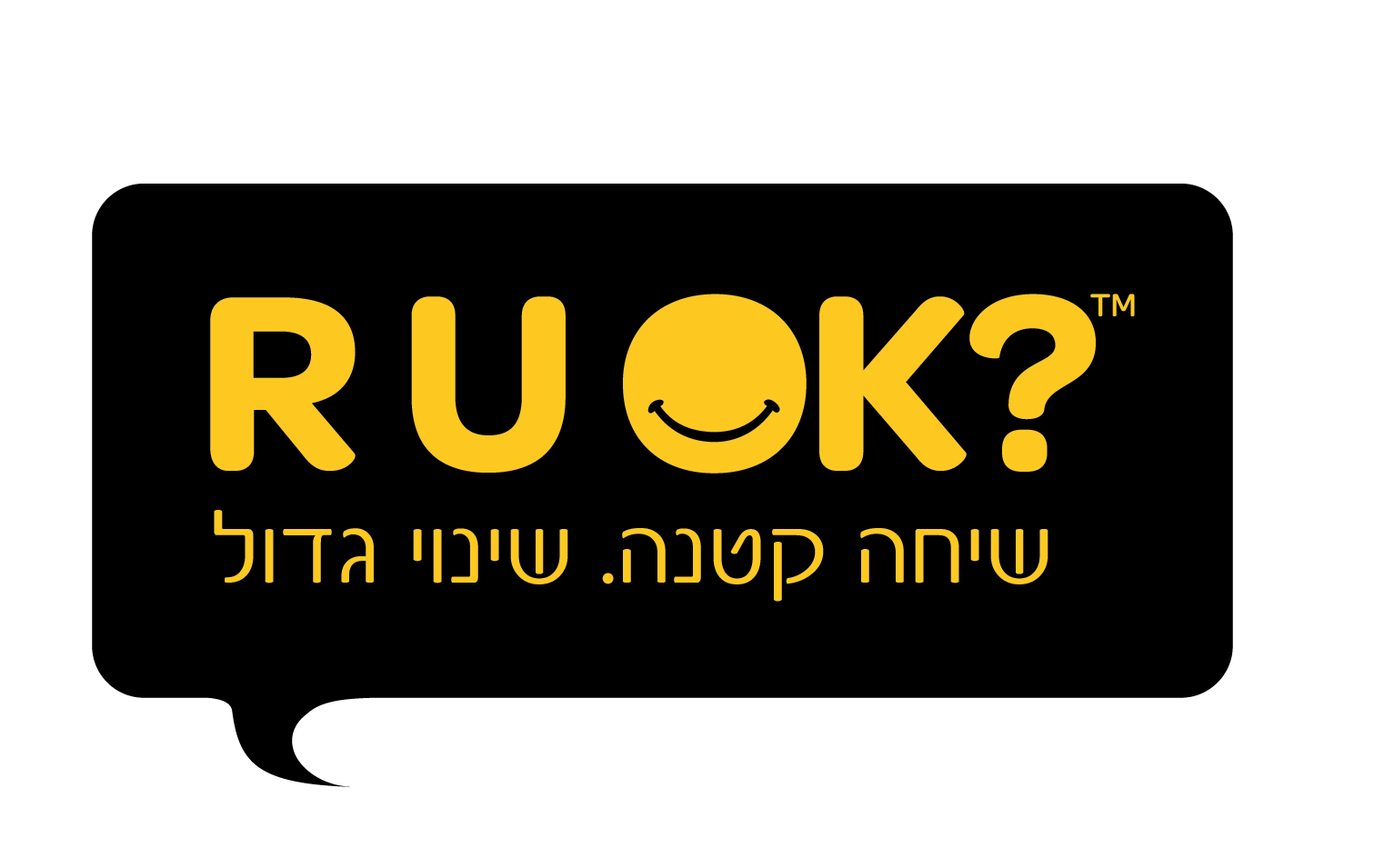?Am I OK
Caring for others begins with caring for yourself. The ability to notice, listen, and genuinely connect with those around us stems from developing self-awareness. In the ever-changing and often challenging reality we face – especially since October 7th – it’s more important than ever to check in with yourself. Here are some practical ways to nurture your well-being:
- Ask Yourself: How Do I Feel?
We often suppress difficult emotions or experiences, but taking the time to check in with yourself is essential. Pause and ask:
- How do I feel right now?
- Am I truly okay?
Find a quiet space – your bed, balcony, or even a peaceful spot at the beach – and allow yourself to acknowledge your emotions without judgment. Sorting through your thoughts can create clarity and pave the way for a more authentic and fulfilling life.
- Know Your Warning Signs
Pay attention to subtle changes in your behavior, mood, or habits.
- Are you withdrawing socially?
- Is your appetite fluctuating?
- Do you feel unmotivated or like nothing matters?
These shifts can act as signals that you need care and attention. For instance, if you are typically sociable and are avoiding social interactions, treat it as a reminder to pause and take care of yourself.
- Learn What Helps You in Tough Times
Reflect on what has brought you comfort in the past.
- Was it spending time at the beach, connecting with friends, enjoying quiet moments, exercising, or engaging in a favorite hobby?
- Revisit these activities to ground yourself and regain your sense of balance.
- Remember Who You Can Turn To
In difficult moments, it’s easy to feel isolated, but you’re not alone.
- Think about the people who have supported you before – family, friends, colleagues, or neighbors.
- Reach out to those who listen without judgment and offer encouragement. A simple connection can make a big difference.
- Share What’s on Your Mind
Don’t keep your feelings bottled up. Choose someone you trust and share what you’re going through. Expressing your emotions can lighten the load and help you feel understood.
- Ask for Help
Seeking support is not a sign of weakness – it’s an act of strength. If you’re struggling, reach out to professionals or support networks. You can find information through English Emotional Support Hotlines or other resources available to you.
Daily R U OK? Self-Check
Start each day by asking yourself these three simple but powerful questions:
- Am I Okay?
- It’s okay not to feel okay, but taking steps to address your feelings is crucial.
- Write down your worries, identify one actionable step to begin addressing them, and commit to doing it today.
- What Am I Thankful For?
- Reflect on three things from yesterday that you’re grateful for.
- These could be big moments like quality time with loved ones or small joys like enjoying a favorite snack.
- What Good Things Can I Do Today?
- Brainstorm realistic and manageable ways to bring positivity to your day, whether for yourself or others.
- Start small, but stay consistent. (Even Benjamin Franklin reportedly asked himself this every morning, and he accomplished quite a bit!)
Taking care of yourself isn’t selfish—it’s necessary. By building these habits, you’ll not only improve your own well-being but also strengthen your ability to support others. Remember: self-awareness is the foundation of resilience.
